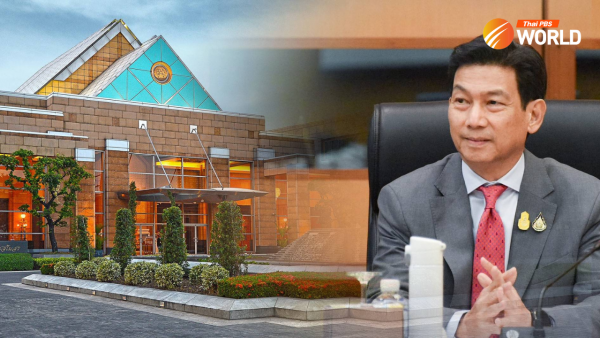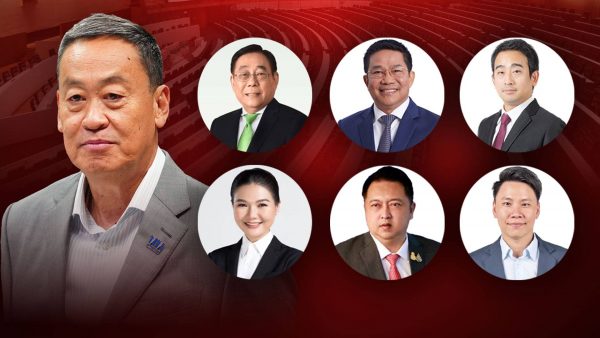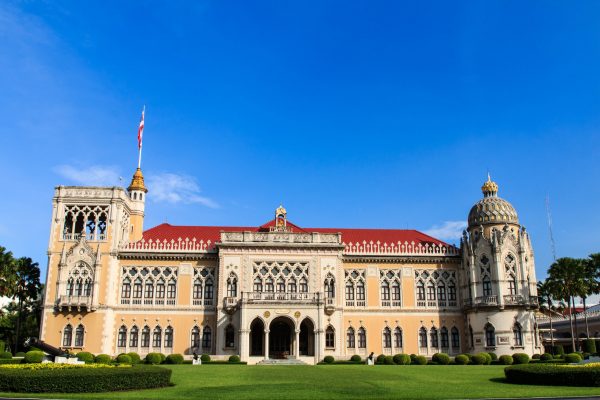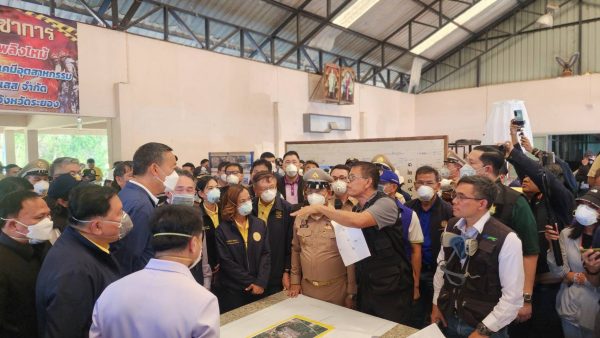“Team Thailand”: Elite medical squad at war with Covid-19

Thais are now pinning their hopes on “Team Thailand”, the term Public Health Minister Anutin Charnvirakul coined to describe the panel of medical gurus tasked with defending the nation against the deadly Covid-19 onslaught.
“This is the best team we have. If it can’t do the job, no one else can,” said Anutin, speaking at a March-21 press conference, flanked by former public health minister Dr Piyasakol Sakolsatayadorn and Dr Prasit Watanapa, dean of Mahidol University’s Faculty of Medicine Siriraj Hospital.
The elite team brings together the heads of medical schools, royal colleges and the Medical Council to weaponize academic expertise and the Public Health Ministry’s experience in the battle to prevent the highly infectious disease from breaking loose in the country.
As of press time, the number of confirmed Covid-19 cases in Thailand stood at 721. The number of new cases rose by 89 on Saturday, 188 on Sunday and 122 on Monday.
The big increases over the past few days could have sparked intense panic had Team Thailand not warned the public that curbing the rate of infection would take time.
On Saturday, Piyasakol – himself a medical specialist – announced that the number of new cases would not drop immediately after the launch of stringent restrictions and the push for “social distancing”, though positive signs could be expected in a week or so.
Following their hours-long meetings with Team Thailand last week, policymakers began taking concrete action to contain the spread of Covid-19.
The team sat down with Prime Minister General Prayut Chan-o-cha and proposed the “Stay Home to Stop Covid-19 for the Nation” initiative.
Without a “soft” lockdown, said the team, the new virus would infect about 350,000 people within one month, leaving more than 50,000 hospitalised and some 17,000 in intensive care units. That scenario would see about 7,000 people killed by Covid-19 – a devastating rise from the single death recorded so far.
The lockdown, if implemented effectively, promises to make a big difference.
After Team Thailand presented its information, working from home became a growing trend, while the mid-April public holiday for Songkran was postponed to later this year. All Bangkok’s shopping malls except for their supermarkets and pharmacies have been shuttered till April 12. Restaurants and food-stalls are now restricted to take-away service only. In support of the lockdown, the Social Security Office has announced that staff can claim unemployment benefit of up to Bt7,500 per month if their firms are closed or suspend operations due to Covid-19.
Yet even though big changes are taking place in the country in the face of the pandemic’s threat, the Thai public remains relatively calm thanks partly to assurances and clear-cut explanations from the country’s most respected doctors.
Born in 1948, Piyasakol has taught at the Faculty of Medicine Siriraj Hospital since 1975. In 1981, he began accompanying HM King Bhumibol Adulyadej the Great (King Rama IX) on trips to rural provinces to deliver medical care to people in remote areas. Between 2000 and 2007, he served as the dean of the faculty, before becoming Mahidol University president until 2011.
He was also public health minister between 2015 and 2019.
Prasit, just like Piyasakol, is a medical lecturer. He is also remembered as one of the men granted the honour of bearing the royal urn containing the remains of King Rama IX during the grand funeral procession in 2017.
At the high-profile press conference, he represented the deans of all medical schools, who have vowed to work in unity with one aim – defeating the virus.
The sight of prominent medical academics sitting down with key government figures raised people’s hope across the country that the experts would help usher Thailand out of the crisis.
Among those buoyed was Sasin Chalermlarp, president of the Seub Nakhasathien Foundation, who was a leading critic of the lack of expertise used in tackling another national calamity – the floods of 2011.
The Covid-19 situation in Thailand, which was first detected here in January, worsened quickly after March 15 when 32 new cases were discovered overnight as a result of contagion hotspots at a boxing stadium and a pub. The shallow curve tracing an outbreak of just a few cases per day suddenly steepened, causing alarm bells to ring.
Disease Control Department’s deputy director-general Dr Tanarak Pilpat, who had been waging war against Covid-19 since it emerged at the start of the year, warned that the situation had changed.
“We are now at a turning point,” he said. “Whether we will collapse or make progress depends on cooperation from society.”
A graduate of the Prince of Songkla University, Tanarak specialises in disease control. He is a veteran of successful campaigns against several new communicable diseases, including MERS (Middle East respiratory syndrome-related coronavirus), SARS (Severe Acute Respiratory Syndrome) and influenza H1N1 2009.
However, he is not so sure whether he will win this battle.
Victory, he said, is not in his hands. It depends on how each and every Thai responds to the control measures.
By Urisara Kowitdamrong






